Man hat das System im Stile von Georg Soros uebernommen und Hillary Clinton, das die Saudis, Katar, oder Aserbeidschan fuer Geld Alles auch gefaelschte Berichte der EU, OSCE kaufen kann.
Alles lange bekannt, das jeder OSCE Abgesandte ebenso sofort bestochen wird, der dort auftaucht, wobei der Name Wolfgang Grossruck, einer Ratte hier nicht faellt, aber als besonders korrupt bekannt, wie der EU Kommissar: Johannes Hahn und Knut Fleckenstein. Die TAP Gaspipeline, ein kriminelles Produkt, der EU was lange bekannt ist, wo serioere Firmen schon ausstiegen, der Ausstieg vom Europarat, Experten schon lange gefordert wird.
From 2012 to 2014, even as the Azerbaijani government arrested activists and journalists wholesale, members of the country’s ruling elite were using a secret slush fund to pay off European politicians, buy luxury goods, launder money, and otherwise benefit themselves.
Banking records revealing some 2.5 billion euro (US$ 2.9 billion) in transactions were leaked to the Danish newspaper Berlingske, which shared them with OCCRP. The two outlets then organized a collaborative investigation to track down where the money went.
The result is the Azerbaijani Laundromat — so called because the vast sums that passed through it were laundered through a series of shell companies to disguise their origin. The project reveals the many uses to which the country’s kleptocratic ruling clique puts some of its billions.
Among other things, the money bought silence. During this period, the Azerbaijani government threw more than 90 human rights activists, opposition politicians, and journalists (such as OCCRP journalist Khadija Ismayilova) into prison on politically motivated charges. The human rights crackdown was roundly condemned by international human rights groups.
Meanwhile, at least three European politicians, a journalist who wrote stories friendly to the regime, and businessmen who praised the government were among the recipients of Azerbaijani Laundromat money. In some cases, these prominent individuals were able to mobilize important international organizations, such as UNESCO and the Parliamentary Assembly of the Council of Europe, to score PR victories for the regime.
Nor do major Western financial institutions escape responsibility. The banking records in the leak — over 16,000 transactions in all — reveal that the core of the Azerbaijani Laundromat was formed by four shell companies registered in the United Kingdom. The country’s lax regulations allowed these companies to file registration paperwork that listed proxy or non-existent shareholders and disguise their true origins.
Moreover, the records show that Danske Bank, a major European financial institution, turned a blind eye to transactions that should have raised red flags. The bank’s Estonian branch handled the accounts of all four Azerbaijani Laundromat companies, allowing the billions to pass through it without investigating their propriety.
A majority of the payments went to other secretive shell companies similarly registered in the UK, indicating that the full extent of the scheme may be much larger than is currently known. Large amounts also went to companies in the UAE and Turkey. (Some of the transactions involve companies in the Russian Laundromat, a vast money laundering scheme previously exposed by OCCRP.)
The subsequent flow of much of these funds is unknown. But the records reveal that millions of dollars ended up in the accounts of companies and individuals across the world, including luxury car dealerships, football clubs, high-end travel agencies, and hospitals. Many of these recipients would not have understood the problematic nature of the transfers, and cannot be accused of doing anything improper. But their involvement reveals the many uses to which the scheme’s operators put their money.
The recipients also included prominent Azerbaijanis with government positions or connections. These include the family of Yaqub Eyyubov, Azerbaijan’s first deputy prime minister, who is one of the country’s most powerful politicians.
They also include Ali Nagiyev, a man responsible for battling corruption in Azerbaijan. As it turns out, he and his family were major users of the system.
Another $130 million likely went to AvroMed, a major drug company co-founded by Javashir Feyziyev, a member of the Azerbaijani parliament who specializes in building relationships with EU politicians. (The recipient’s actual ownership is hidden, but its records match what is known about the pharmaceutical giant.)
But where did all this money come from? Its precise origin is unclear — again, hidden behind a series of secretive shell companies — but there is ample evidence of its connection to the family of President Ilham Aliyev.
Almost half of the $2.9 billion came from an account held in the International Bank of Azerbaijan (IBA) by a mysterious shell company linked to the Aliyevs. The second and third biggest contributors were two offshore companies with direct connections to a regime insider. Some of the money came directly from various government ministries. Mysteriously, another portion came from Rosoboronexport, a state-owned Russian arms exporter. It is clear that the full extent of the Azerbaijani Laundromat will be explored for years to come.
The Azerbaijani Laundromat is the name given to a complex money-laundering operation that handled US$ 2.9 billion over a two-year period thanks to four shell companies registered in the United Kingdom.

The Southern Gas Corridor, a system of mega-pipelines meant to bring gas from the Caspian region to Europe, is unnecessary in light of gas demand projections but will boost Azerbaijan’s dictatorial regime and cause damage to local communities and the environment.
Find out more
The power of lobbies
Brussels is at the centre of EU decision-making and as such attracts thousands of lobbyists promoting the interests of big business. In this section you can find basic information about this corporate lobbying and how it affects you as a citizen. Or you can visit our specific pages on the revolving door phenomenon of politicians who become lobbyists – and vice versa – and on the corporate dominance of expert groups whose advice helps make official policy for the EU.
Deutlicher als Cecilia Malmström kann man es kaum ausdrücken, was in der EU schiefläuft:
“I do not take my mandate from the European people.”
http://www.independent.co.uk/voices/
Gefällt mir Wird geladen …
Ähnliche Beiträge



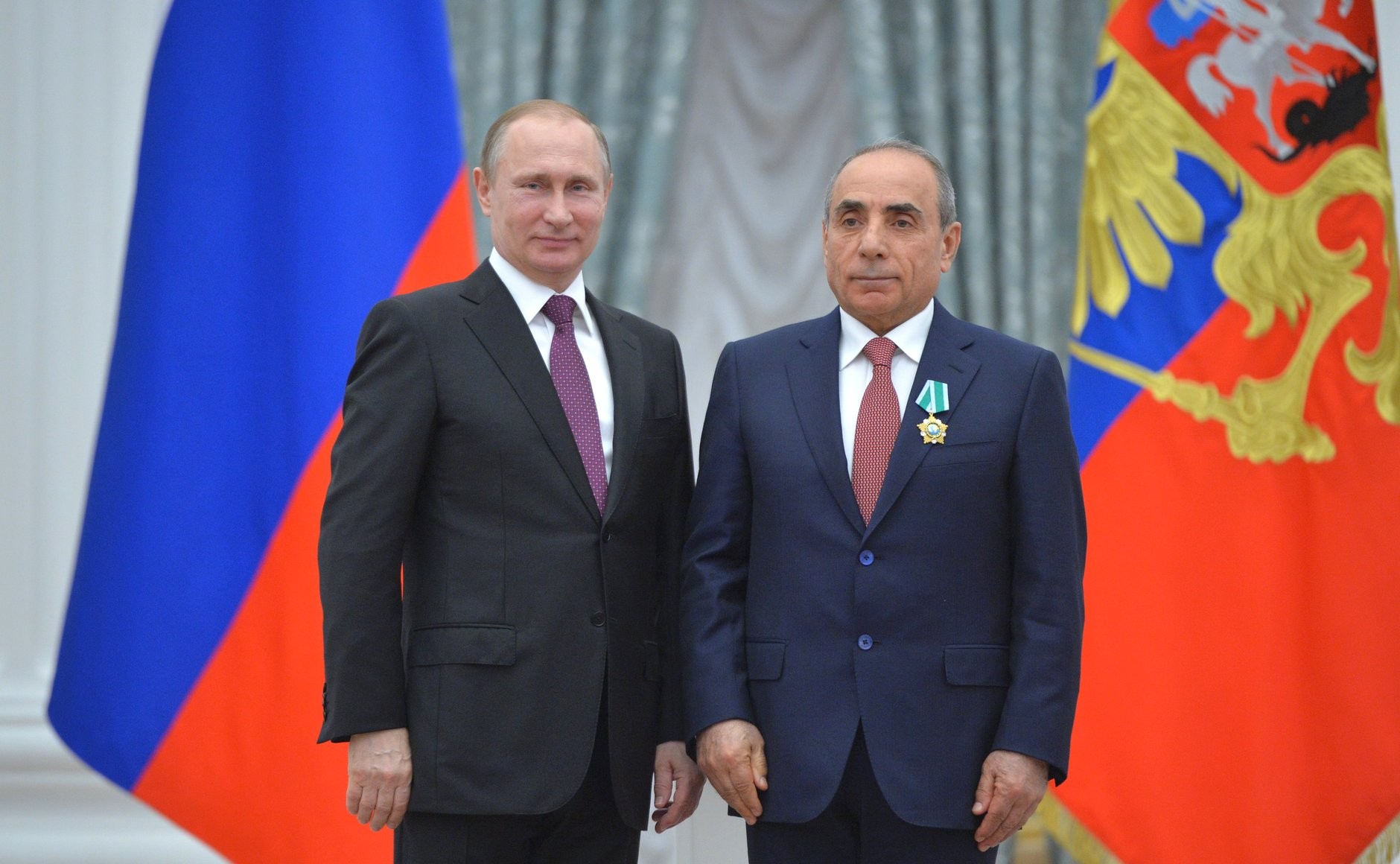

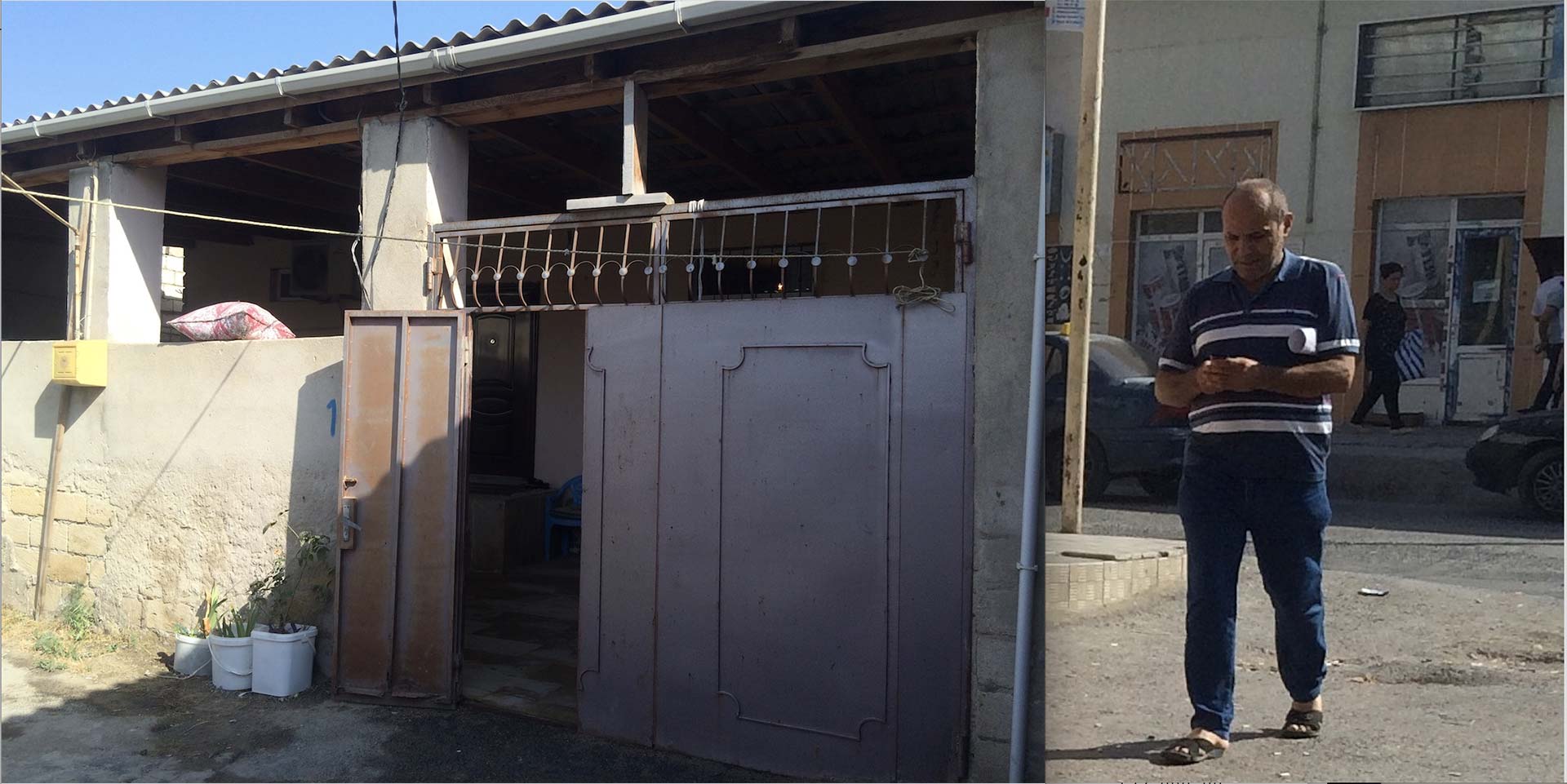



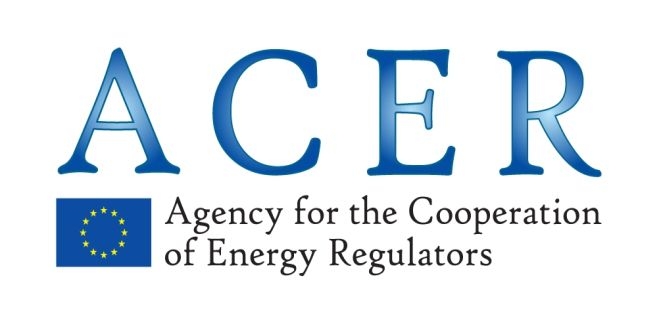
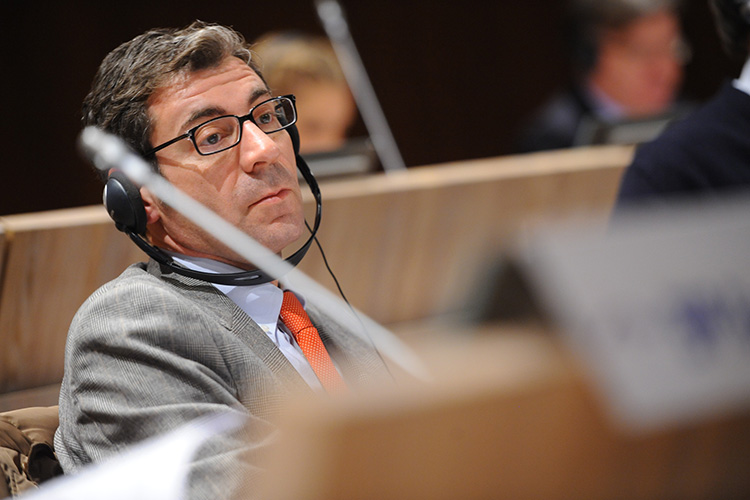




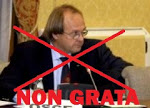
Aserbeidschan und die Kaviardiplomatie
12. September 2017 Dirk Eckert
Das Land in der Hand einer Familiendynastie kämpft mit dem Preisverfall des Öls und hat mit Milliarden Lobbyarbeit bei Politiker und Journalisten gemacht
Alles hell erleuchtet, vom Flughafen bis in die Innenstadt. So präsentiert sich Baku den Besuchern. Das Land des Feuers nennt sich Aserbaidschan traditionell, wegen der Erdöl- und Erdgasvorkommen im Lande. Deswegen sind die großen Häuser an den Hauptstraßen der Stadt hell erleuchtet, ebenso wie die Altstadt. Schlendert man die Promenade entlang, sieht man auch die Baku Crystal Hall leuchten, wo 2012 der Eurovision Song Contest stattfand.
https://www.heise.de/tp/features/Aserbeidschan-und-die-Kaviardiplomatie-3826043.html
Eduart Linter u.a. dabei bei Kongress in Paris der MEK Terroristen, gut geschmiert wie der Aserbeischan Mafia von den grössten Waffen und Drogen Händlern
Veranstaltung für Iran-Regime-Change in Paris
1. Juli 2018 BlauerBote 1
Eine Großveranstaltung zum Sturz der aktuellen iranischen Regierung findet zur Zeit in der französischen Hauptstadt Paris statt. An dieser Absicht der Veranstaltung dürften angesichts speziell angepriesener Twitter-Hashtags wie #IranRegimeChange keine Zweifel bestehen.
Die Veranstaltung wird offenbar von der (wegen des beabsichtigten Sturzes der iranischen Regierung durch den Westen) seit einigen Jahren nicht mehr von EU und USA als Terrorgruppe geführten iranischen MEK durchgeführt, die auch bei der Kampagne in Politik und Medien gegen den Iran Anfang des Jahres 2018 beteiligt war (gefälschte Demonstrationsbilder, von der MEK gelieferte Bilder in deutschen Medien etc.).
MEK-Führerin Maryam Rajavi hat in Paris per Rede und Tweet schon einmal den Sturz der iranischen Regierung im Laufe dieses Jahres angekündigt: „Regime Overthrow Is Certain, Iran Will Be Free #FreeIran2018 #IranRegimeChange“.
Rajavi liegt damit auf einer gemeinsamen Linie mit dem neuen Nationalen Sicherheitsberater der USA unter der Regierung des Präsidenten Donald Trump, John Bolton. Bolton hat vor nicht allzu langer Zeit laut Medienberichten aus den USA der iranischen Oppositionsgruppe/Terrorgruppe MEK den baldigen Sturz der iranischen Regierung in Aussicht gestellt und zwar noch vor dem 40. Jahrestag der Revolution im Iran am 11. Februar 2019.
Völkerrechtlich handelt es sich beim Sturz einer Regierung von außerhalb (durch andere Regierungen, aus einem anderen Land) um ein Verbrechen auf der Stufe eines Angriffskrieges. Immer offener wird dies im Westen – vor allem in der veröffentlichten Meinung – als normal betrachtet. Auch nach deutschem Recht sind solche Aggressionen gegen andere Länder strafbar und werden mit mehrjährigen Haftstrafen bedroht.
Mehr zum Thema:
US-gesteuerte Proteste im Iran
MEK – Die Kämpfer der USA im Iran
Sturz der iranischen Regierung bis 2019
ARD-Tagesschau fälscht Iran-Proteste
ZDF fälscht Demonstration im Iran
Hier noch einmal die Führerin der MEK bei der Konferenz in Paris:
Nachtrag:
Bei der Veranstaltung nahmen auch deutsche Politiker als Vertreter Deutschlands teil, namentlich der Bundestagsabgeordnete Martin Patzelt (CDU) sowie der ehemalige Bundestagsabgeordnete Eduard Lintner (CSU). Die Website iranfreedom.org berichtet stolz: „German delegation led by Eduard Lintner admires resoluteness of Iranian resistance. Eduard Lintner, former German deputy Interior Minister and Martin Patzelt, Member of Germany Bundestag represented the German delegation in the Iranian convention in Paris. They cited their support for Iranian struggle for freedom“.
http://blauerbote.com/2018/07/01/veranstaltung-fuer-iran-regime-change-in-paris/#comment-23888
vollkommen korrupt die EU, die Deutsche Politik und Angela Merkel mit diesem Despoten
Die neue „Neue Ostpolitik“ (I)
24.08.2018
BAKU/BERLIN (Eigener Bericht) – Mit einem Besuch in dem Erdölstaat Aserbaidschan beendet Bundeskanzlerin Angela Merkel am morgigen Samstag ihre aktuelle Reise in die drei Länder des südlichen Kaukasus. Der Besuch hat schon vorab für öffentliche Aufmerksamkeit gesorgt, weil die autoritär herrschende aserbaidschanische Regierung einem CDU-Politiker aus der begleitenden Bundestagsdelegation die Einreise verweigerte. Berlin ist gegen den ungewöhnlichen Affront nicht vorgegangen – offenkundig, weil es sich von Baku Unterstützung bei wichtigen Projekten für die deutsche Energieversorgung erhofft und die Annäherung des Landes an Russland bremsen will. Laut Auskunft des Bundeswirtschaftsministeriums kommt Baku trotz eines OSZE-Waffenembargos auch als Empfänger deutscher Rüstungsexporte in Frage. Rheinmetall steckt bereits in entsprechenden Verhandlungen. Seit dem Amtsantritt des neuen Außenministers Heiko Maas (SPD) forciert Berlin eine selbst proklamierte „Neue Ostpolitik“, die mit verstärkten Kooperationsangeboten insbesondere an die Staaten des Südkaukasus einhergeht.
Kleiner Eklat
Bereits vor Merkels Abreise in den Kaukasus hatte die Mitteilung für Schlagzeilen gesorgt, die aserbaidschanische Polizei könne den CDU-Bundestagsabgeordneten Albert Weiler, der Merkel begleiten wollte, festnehmen. Ihm wurde das Visum verweigert, da er 2014 und 2016 die von Baku abtrünnige, mehrheitlich von Armeniern besiedelte Separatistenrepublik Bergkarabach besucht hatte. Letztlich zog sich Weiler nach einer Aussprache mit Merkel aus der Reisedelegation zurück; ein Festhalten am Besuch der Bundeskanzlerin sei „sinnvoll und wichtig“, kamen beide nach Presseberichten überein. Politiker von SPD und FDP kritisierten diesen Schritt. Der außenpolitische Sprecher der FDP-Bundestagsfraktion, Bijan Djir-Sarai, kommentierte den Fall mit den Worten: „Das ist eine Respektlosigkeit gegenüber dem gesamten Bundestag“.[1] Hätte der Vorgang der Bundesregierung unter anderen Umständen Anlass zu scharfen Attacken gegeben, so zeigt das regierungsamtliche Stillschweigen, dass die Kanzlerin sich von der Regierung in Baku Mithilfe bei wichtigen Vorhaben erhofft.
Rüstungskontakte trotz Embargo
Die Wirtschaftskontakte zu dem Kaukasusstaat Aserbaidschan, zu dem die Bundesrepublik schon im Jahr 1992, unmittelbar nach seiner Gründung, Beziehungen aufgenommen hat, stehen auf einer vergleichsweise breiten Grundlage. Wie der deutsche Botschafter in der aserbaidschanischen Hauptstadt Baku im vergangenen Jahr erklärte, habe Deutschland „mit keinem anderen Staat der Region […] umfangreichere Wirtschaftskontakte als mit Aserbaidschan“ etabliert. Das lasse sich unter anderem daran ablesen, dass es in dem Land als einzigem Mitglied der GUS neben Russland eine deutsche Auslandshandelskammer gibt.[2] Zu den bisherigen Kooperationsfeldern könnte in Zukunft erstmals auch der Rüstungssektor hinzukommen. Wie mehrere deutsche Medien übereinstimmend berichteten, haben Vertreter des Rüstungskonzerns Rheinmetall im Sommer dieses Jahres eine Absichtserklärung mit aserbaidschanischen Regierungsvertretern über die Untersuchung von „Möglichkeiten der Kooperation“ unterschrieben. Seit 1992 besteht – wegen des Konfliktes um Bergkarabach – ein Waffenembargo der Organisation für Sicherheit und Zusammenarbeit in Europa (OSZE) gegenüber Armenien und Aserbaidschan. Dessen ungeachtet erklärte das Bundeswirtschaftsministerium zu der Absichtserklärung von Rheinmetall, ein Export von Rüstungsgütern nach Aserbaidschan könne „in Ausnahmefällen“ möglich sein – ein weiterer Hinweis darauf, dass Berlin mit Nachdruck die Kooperation mit Baku sucht.[3]
„Südlicher Gaskorridor“
Die Bedeutung Aserbaidschans rührt vor allem aus seiner Rolle für die deutsche Energieversorgung. Im Jahr 2016 war das Land der fünftgrößte Erdöllieferant der Bundesrepublik noch vor Nigeria, Algerien und dem Irak. Zudem ermöglicht seine geografische Lage den Transport von Öl und Gas an Russland vorbei nach Europa – durch den Südkaukasus und die Türkei. Nach dem Scheitern der unter anderem von führenden deutschen Transatlantikern wie dem ehemaligen Außenminister Joseph Fischer unterstützten Nabucco-Erdgaspipeline, die entlang dieser Trasse hätte verlaufen sollen [4], konzentrierte sich die EU mit ihrem Projekt „Südlicher Gaskorridor“ (SGC) auf die Fertigstellung mehrerer Einzelröhren, allen voran die Transanatolische Pipeline (TANAP). TANAP verlängert die seit 2006 in Betrieb befindliche Südkaukasus-Pipeline, die Gas aus Baku über Tiflis ins türkische Erzurum führt, bis an die türkisch-griechische Grenze. Mit der Eröffnung der quer durch die Türkei verlaufenden TANAP im Juni dieses Jahres materialisierte sich das von der EU massiv mitgeförderte SGC-Projekt endgültig.[5] Im Gegensatz zu der geplanten Nabucco-Röhre, an der der deutsche Energieversorger RWE mit 20 Prozent beteiligt war, befindet sich TANAP überwiegend in der Hand aserbaidschanischer und türkischer Staatskonzerne; westliche Konzerne nehmen nur eine Juniorrolle in dem Pipelineprojekt ein.
https://www.german-foreign-policy.com/news/detail/7698/
Alles wurde bestochen, jede EU Regulation ausgehebelt im Wildwest Bau der TAP Gaspipeline Pipeline mired in controversy gets half a billion euros from European development bank Brussels, London, Rome, Prague – Today the European Bank for Reconstruction and Development (EBRD) has approved a loan of EUR 500 million for the multi-billion euro Trans-Adriatic Pipeline (TAP) [1], in spite of the project failing to conform to the bank’s own policies and the fervent local resistance following the 878-kilometre pipeline where it crosses land in Greece and Albania before arriving onshore in Italy. CEE Bankwatch Network * Counter Balance * Global Witness For immediate release With its decision, the London-based lender shrugged off the findings of two independent evaluations blasting the project’s compliance with the EBRD’s Environmental and Social Policy, the rules which place restrictions on the types of activities the bank can finance. The first [2] details how construction on TAP has led to at least thirteen formal complaints lodged with project financiers [3] and demonstrates violations to the Equator Principles [4], the minimum standards for responsible investment and management of environmental and social risk in the project finance sector and a benchmark for those EBRD policies. The second report from Ramboll Environ, a private consultancy commissioned by TAP AG itself, finds ‘major non-compliance’ [5] with project construction and certain aspects of the bank’s Environmental and Social Policy. Furthermore, in the southern Italian province of Lecce where TAP makes landfall, the project is the subject of an ongoing investigation by the public prosecutor concerning the authorisation and fulfilment of its environmental impact assessment [6]. The prosecutor is also looking into allegations that the project fails to comply with the EU’s directive on industrial risk, which may pose a serious public security threat to the four communities located near to the planned pipeline receiving terminal. Elena Gerebizza, energy campaigner with Re:common, said, “The EBRD failed in its due diligence by refusing to properly listen to the people of Melendungo, the community on whose shores TAP arrives and who for years have resisted the devastation wrought by this unwanted project. We add our voices to those in Melendugno, calling on the EBRD to carry out a proper investigation and independent assessment of the project.” Fidanka McGrath, EBRD policy officer for Bankwatch, said: “The EBRD has taken a long time to approve the TAP project, but the fight from locals and the major non-compliance findings of consultants show that it is not fit for purpose. The massive injection of public money in the Southern Gas Corridor, that TAP is part of, has not been enough to make right everything that is wrong with the pipeline: from fueling corrupt and oppressive regimes, the project tramples on the rights of farmers and communities, and ends by locking in Europe to fossil fuels.” Xavier Sol, Director for Counter Balance, said, “The EBRD has taken today an unfortunate decision to fund TAP. As the mayor of Melendugno has said, the EBRD made no real effort to properly consult locals impacted by the pipeline and did not conduct a thorough and independent assessment of the project. More should have been expected from this public bank to really act in the public interest. Public funds end up supporting an imposed mega infrastructure lying on unstable ground, given the recent change of government in Italy. ” With today’s decision from the EBRD, development banks together have funded over EUR 6 billion for the Southern Gas Corridor [7], the 2000 kilometre stretch of pipeline beginning in Azerbaijan and spanning Turkey before linking up to TAP. For more information contact Fidanka McGrath EBRD policy officer, CEE Bankwatch Network Email: fidankab@bankwatch.org Elena Gerebizza Energy campaigner, Re:Common Email: egerebizza@recommon.org Notes [1] https://www.ebrd.com/work-with-us/projects/psd/trans-adriatic-pipeline-project.html [2] https://www.banktrack.org/download/the_transadriatic_pipeline_project_identified_noncompliance_with_the_equator_principles/the_tap_project_identified_noncompliance_with_the_equator_principles.pdf [3] The complaints have been received by the European Investment Bank, the EU’s bank that in February signed off on a loan of one and half billion euros for TAP. The EBRD will register complaints only after it has approved a project. [4] The Equator Principles are a well-established risk management framework currently adopted by 89 of the world’s top commercial banks in order for them to assess and manage environmental and social risk when advising on or financing certain categories of projects. See http://equator-principles.com/members-reporting/ [5] https://www.tap-ag.com/assets/07.reference_documents/english/Project%20Finance%20Disclosure/Executive%20Summary%20of%20TAP%20Site%20Visit%20Monitoring%20Report%20Spring%202017_UK2222080_Issue_01a.pdf [6] https://www.ilfattoquotidiano.it/2018/01/09/tap-la-procura-di-lecce-riapre-linchiesta-dopo-lesposto-di-otto-sindaci-salentini-unico-gasdotto-con-snam-leggi-aggirate/4082033/ [7] https://docs.google.com/spreadsheets/d/1NktFpFQY8x1Y8pxnGiEnL3i5hlKIq2GRsl5Vm3u4vt8/edit#gid=247408276 https://bankwatch.org/press_release/trans-adriatic-pipeline-gets-loan-from-ebrd
Die Profi Kriminellen CDU, CSU Abgeordneten, auch mit Corona Masken Deals
https://www.swr.de/swraktuell/baden-wuerttemberg/swr-dokumentation-aserbaidschan-connection-100.html?utm_source=pocket-newtab-global-de-DE